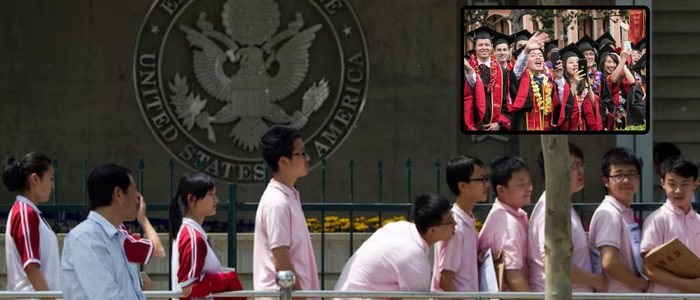Her ordeal reflects mounting nervousness among Chinese students, who number about 280,000 in the United States, who find themselves newly vulnerable to visa denials, possible deportation and political suspicion even as they hold valid documents. "It is bad for every Chinese student. I mean, the only thing that's different is how much bad," Chen said.
Politics, Espionage Fears and a Shifting Narrative
The Trump administration's measures, echoed by officials such as Homeland Security Secretary Kristi Noem and Secretary of State Marco Rubio, have associated Chinese students with possible ties to the Chinese Communist Party or military. Critics say the measures are discriminatory due to their broad scale and lack of transparency.
A Chinese post-doctoral student who was to attend Harvard to study regenerative medicine had his visa revoked when he arrived in Boston. While his previous work was at a military-affiliated university, he stressed that he worked on breast cancer — not military research. "How would breast cancer be a part of national defense?" he asked.
For others like Mr. Cao, a psychology major, mistrust alone has derailed academic aspirations. He had top-tier credentials but got only one offer from more than 10 US PhD applications. One professor openly acknowledged he avoids hiring Chinese students altogether.
Going Back Home Brings Little Relief
Even for those who eventually finish their education abroad, coming home to China isn't always easier. US degrees that were once cherished have become less appealing in an increasingly politicized climate in China. Chen Jian, who interned at a state-owned bank after returning from the US, was quietly nudged toward not applying for a permanent position because of his overseas education status.
There has been growing domestic suspicion as well. A top Chinese businesswoman, Dong Mingzhu, recently told shareholders her company would "never" hire graduates from foreign universities out of fear they might be spies. Her comments, which were later leaked online, played into a broader story that had been under way in Chinese state media about the necessity for Chinese citizens to report foreign spies.
A Once-Hopeful Future Begins to Fade
The change in attitudes has left many young Chinese like Zhang Ni, who holds a graduate degree in journalism from Columbia, feeling alienated. "That openness to exchange is waning," she said, harking back to a childhood in which she was encouraged to practice English and explore the outside world.
The geostrategic power struggle between the US and China has made students collateral damage – stuck between superpowers' dreams of global domination and the politics of distrust. The promising trip to school has turned into a journey fraught with suspicion, been set back by the ordeal and is haunted by the cruel joke that Zhang heard before departing: "Don't drop out of the school and be an intelligence agent."
















